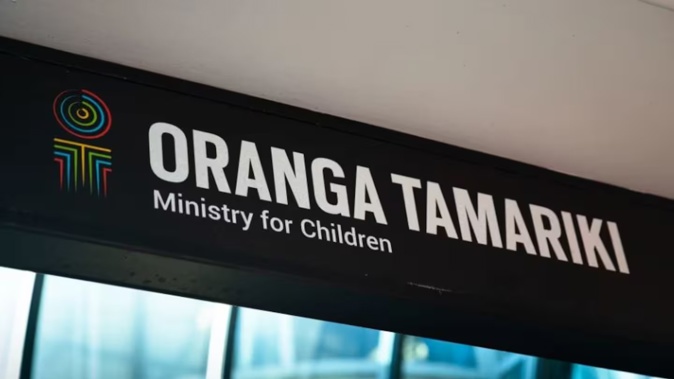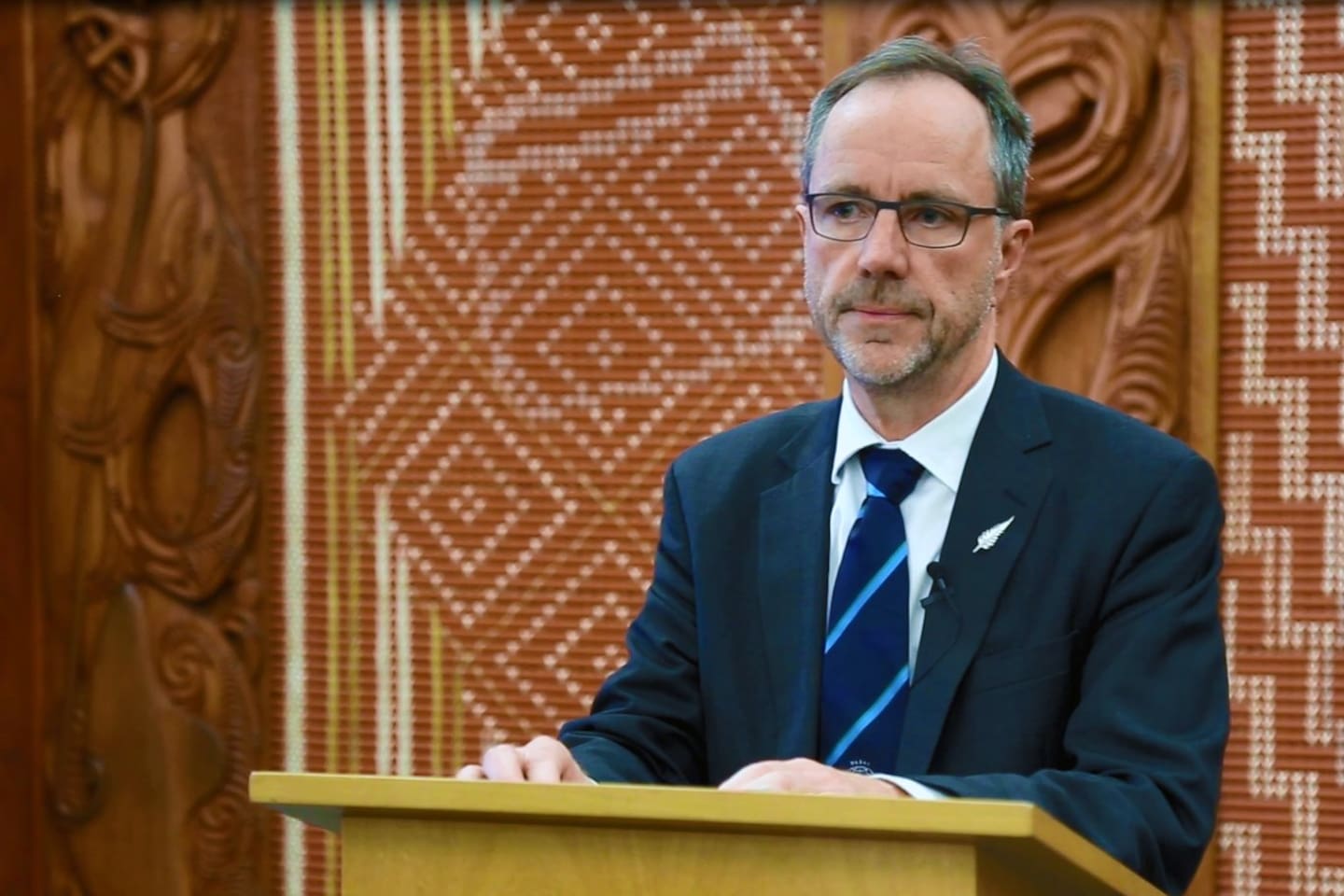
A top government watchdog has blasted Oranga Tamariki’s decision-making in contracting social services, saying the agency’s processes “were not adequately informed by evidence or an understanding of how decisions would affect children and their families”.
“The effects of decisions on children and their families are still not known. Given that this is the core role of Oranga Tamariki, it is unacceptable for it to be in this situation,” Auditor-General John Ryan said today.
The watchdog also said Oranga Tamariki was “slow in, or resistant to, acknowledging responsibility for errors” and some public statements “appeared to blame providers for a situation that was fundamentally its responsibility”.
Oranga Tamariki acting chief executive Andrew Bridgman said the agency accepted the findings and it had “already made significant changes to address the issues the Auditor-General now outlines”.
“These shifts include new governance and leadership, stronger programme management, improved contract management and a refreshed commissioning framework.
“We look forward to continuing to work with providers to ensure services are available that improve outcomes for tamariki and rangatahi.”

Oranga Tamariki acting chief executive Andrew Bridgman says the agency has made improvements. Photo / Jamie Ensor
The blistering comments from the Auditor-General arise from an inquiry his office conducted into Oranga Tamariki’s procurement and contract management practices.
The agency spends about half a billion dollars a year on contracts with social services to help deliver support to children and families in need. In 2023-24, Oranga Tamariki spent $537 million contracting about 550 providers.
The inquiry began after concerns about Oranga Tamariki’s processes in the 2024-25 contracting round. Those concerns included the way it handled several changes to its practices.
With the Government expecting Oranga Tamariki to find savings of 6.5% from its budget, the agency looked for ways to reduce its spending on contracted services.
This included deciding to fully recover any funding that it considered providers had not spent on services. Up until that point, Oranga Tamariki had allowed providers to retain that funding, even if they had not achieved all of their contracted measures. Providers could move the funding from underused services to overused ones to meet demand.
“Oranga Tamariki did not provide adequate advance warning of this change in practice,” the report says. “Providers were taken by surprise, and the reconciliation process did not go smoothly.”
“Reconciliation occurred at the same time as the 2024-25 contracting round and drew the focus of Oranga Tamariki away from decisions about what services it wanted to contract in the future.”

This is just the latest report to be critical of Oranga Tamariki processes. Photo / Jason Oxenham
The agency also decided to reduce its overall spending on contracted services in 2024-25 by about $60m, which was to be achieved in part by reviewing its entire contracted services budget, including contracts expiring on June 30, 2024, and multi-year contracts that were not due to expire.
The report says staff in Oranga Tamariki’s national office made top-down decisions about the contracting round, and it was “unclear how regional staff’s input informed those decisions”.
“Oranga Tamariki also made decisions late in the process. It did not adequately document the decisions’ rationale or any risks associated with them.
“We did not see evidence that Oranga Tamariki understood how its decisions would affect children and their families. Decision-making documents did not include information about the consequences for children of funding reductions or whether the reductions could jeopardise providers’ financial viability or their ability to provide services for other public organisations.”
The Auditor-General also says in the report that communication to providers was late and with insufficient notice.
“For example, on 27 June 2024, it informed providers whose contracts were set to expire on 30 June 2024. Because of the long weekend for Matariki, those providers effectively had only several working hours’ notice that Oranga Tamariki would not renew their contracts. Oranga Tamariki also did not give providers clear reasons why it had made its decisions.”
Onus was then placed on providers with expiring or discontinued contracts to move children and families to alternative providers without adequate support or information. In some instances, the report says the agency continued to refer people to services it was discontinuing.
“Other matters complicated the contracting round. Oranga Tamariki carried out a major organisational restructure at the same time, and this affected its communication and relationships with providers. At short notice and late in the process, it transferred responsibility for the contracting round away from, and then back to, the team that originally led the work.”

The latest scathing report into Oranga Tamariki comes from Auditor-General John Ryan. Photo / BusinessDesk
Negotiations about contracts continued well into the 2024-25 year, the report says, with providers continuing to experience difficulties getting timely and clear responses from Oranga Tamariki.
“Oranga Tamariki used threats of termination and did not pay some providers, which put pressure on them to agree to vary their contracts.
“Oranga Tamariki was still carrying out the contracting round when we wrote this report. In early 2025, the Minister for Children asked Oranga Tamariki to pause its review of contracts and extend certain contracts until 31 December 2025. It was working through this request’s implications when we prepared this report.”
The Auditor-General says Oranga Tamariki is entitled to make decisions about what services to buy, and that it is important to monitor providers’ performance to ensure public money is being spent in keeping with the contract.
“I recognise the challenges that Oranga Tamariki faced and do not doubt that Oranga Tamariki intends its spending to benefit the children who need it and that it wants to target this spending well. Providers also told us that they understood that Oranga Tamariki was in a difficult situation and that it could not guarantee them funding.”
However, the report says Oranga Tamariki was “poorly prepared” to carry out the 2024-25 contracting round, had an inadequate approach to procurement and had not made material improvements to its practices, despite being aware of some issues for years.
Other issues are outlined in the report, all leading the Auditor-General to conclude that “these failures have harmed trust and confidence in Oranga Tamariki”.
“In my view, Oranga Tamariki could have avoided many of the issues that arose in the contracting round if it had robust procurement and contract management systems. Oranga Tamariki needed to place as much emphasis on managing contracts and relationships with suppliers well as it did on procuring the services in the first place.”
He says Oranga Tamariki commissioned its own review of the contracting process and has begun work to make improvements.
“However, it needs to make significant and urgent improvements to address the concerns outlined in this report.”
Four recommendations are made, including preparing a clear strategy, engaging with social services to have a standard process for contracting rounds, and ensuring decisions are informed by a detailed analysis of the likely effect on children, young people and the sector.
Minister of Children responds
Children’s Minister Karen Chhour acknowledged the Auditor-General’s findings about “poor” management. She said it was something she had heard directly from providers.
“While progress has been made since the period covered by the report, I would also like to commit to providers that the work already under way to improve on these findings [is] motivated by a desire to truly work better with them and our communities,” she said in a statement.
Assessments had found Oranga Tamariki had been funding “well-intentioned services that were not primarily focused on the care and protection of vulnerable young people”.
“Good contracting of services is not just handing out cheques and hoping for the best, it is about thoughtfully and intentionally funding the right services where they are most needed. It requires collaboration and good communication with those we contract to. I acknowledge that Oranga Tamariki has work to do in this space.”
Children's Minister Karen Chhour said good practice "requires collaboration and good communication with those we contract to". Photo / Mark Mitchell
Chhour gave some examples of contracted services that she believed had “little to no connection to young people”, were no longer relevant to New Zealand, or were a duplication of services in communities.
They included Oranga Tamariki funding adult self-defence courses, and multiple organisations providing identical services in the same community “within walking distance”.
“Thanks to Oranga Tamariki undertaking this review of all contracts, issues like these were raised and their funding can now be transferred to more urgent and impactful frontline services,” she said.
“In spite of what has been claimed by others, there has been no reduction in Oranga Tamariki frontline services. Instead, Oranga Tamariki has improved the services provided by funding based solely on a child’s needs and what is in their best interests.”
She said it was unfortunate these providers had not received clarity and assurance about funding, but improvements were being made.
“Contracting now has a deputy chief executive focused solely on it. It is still early days, but I am already seeing great progress on improving processes and improving provider engagement. This improvement work will take time, and I thank our providers for their patience while we fix a complex and flawed system.”
The Auditor-General’s report is just the latest review or inquiry to find failures at Oranga Tamariki. In October, the Chief Ombudsman said issues at the agency meant it didn’t properly investigate reports of violence against preschool and primary school-aged children.
Jamie Ensor is a political reporter in the NZ Herald Press Gallery team based at Parliament. He was previously a TV reporter and digital producer in the Newshub Press Gallery office.
Take your Radio, Podcasts and Music with you









